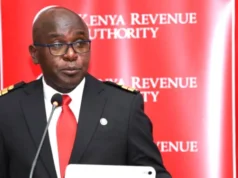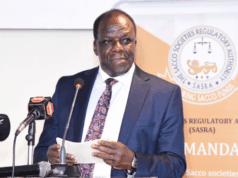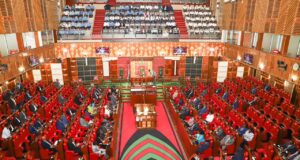Let us be fair, while we could raise money locally by listing Kenya Railways and using it to develop more commuter rails within the city and to other satellite towns, we are not. My imagination is the National Boda Boda Sacco raising funds to buy into the rail business, and so should the Matatu Saccos that move millions of Kenyans daily.
When transaction advisors structure such listings, they must create categories that allow participation from local sectors so that ordinary Kenyans and their enterprises are not locked out of owning a piece of national infrastructure. This is how wealth is spread and patriotism in development is strengthened.
Kenya Pipeline is another example. We could list it, raise money, and fast track the expansion of the oil pipeline to service the LAPSSET corridor. The project would link us better to Ethiopia and South Sudan while enhancing our position as a regional hub. Yet we hold back, keeping assets that can develop themselves idle and dependent on government allocations.
Why are we afraid? Why can we not be transparent in these transactions? Every time we have opened up parastatals through the capital markets, the stories have been nothing short of successful. KenGen, Kenya Re, Safaricom; these listings remain some of the brightest jewels in the Nairobi Securities Exchange.
They elevated our bourse into one of the most attractive in Africa and drew in foreign direct investment that went beyond paper wealth to create jobs, innovation, and infrastructure.
If we were bold enough, we could sell even 10% more of Safaricom and raise substantial capital to finance the next phase of development. That money could fast track Konza Technopolis into becoming a global smart city rather than a project that lingers for decades.
The truth is that our parastatals hold untapped capital sitting idle in government books. If unlocked through the market, this capital can build the country faster, while still maintaining state oversight and national interest.
But one rule must be followed religiously: the proceeds of these sales should go directly into the development of the same sector. If Kenya Railways sells shares, the money must build more railways and modernize stations.
If Kenya Pipeline lists, the proceeds must extend our oil distribution network. If Safaricom is partly offloaded, the capital must build our ICT backbone, digital hubs, and research centres. What must never happen is for this money to vanish into debt repayment or to be swallowed by recurrent expenditure.
That would defeat the whole purpose and leave us in a worse position with nothing left to sell. Strategic reinvestment is the safeguard of our national assets and the guarantee of future growth.
This is how countries grow their capital markets. This is how citizens begin to feel ownership of their national corporations. When Kenyans own a stake in Kenya Railways, when Boda Boda and Matatu Saccos own a stake in transport infrastructure, they protect it, they use it, and they hold it accountable.
When farmers buy into Kenya Pipeline, they demand efficiency because they too benefit from its success. It ceases to be the government’s company and becomes the people’s company, a collective pride that inspires discipline in management.
We should not fear privatization through the stock market. It is not selling off the family silver; it is sharpening it to ensure it serves us longer and better. The government’s responsibility is simple: to make sure it is Kenyans buying these shares. That way wealth remains at home, opportunities circulate among us, and future generations inherit institutions that are vibrant, competitive, and globally relevant.
Listing parastatals is not just about raising money. It is about creating a culture of shared prosperity, transparency, and economic participation. The faster we embrace this, the quicker we shall move into the future with confidence, knowing our assets are not only safe but thriving under the collective stewardship of the people.















